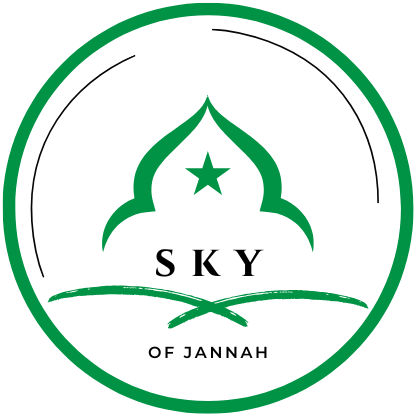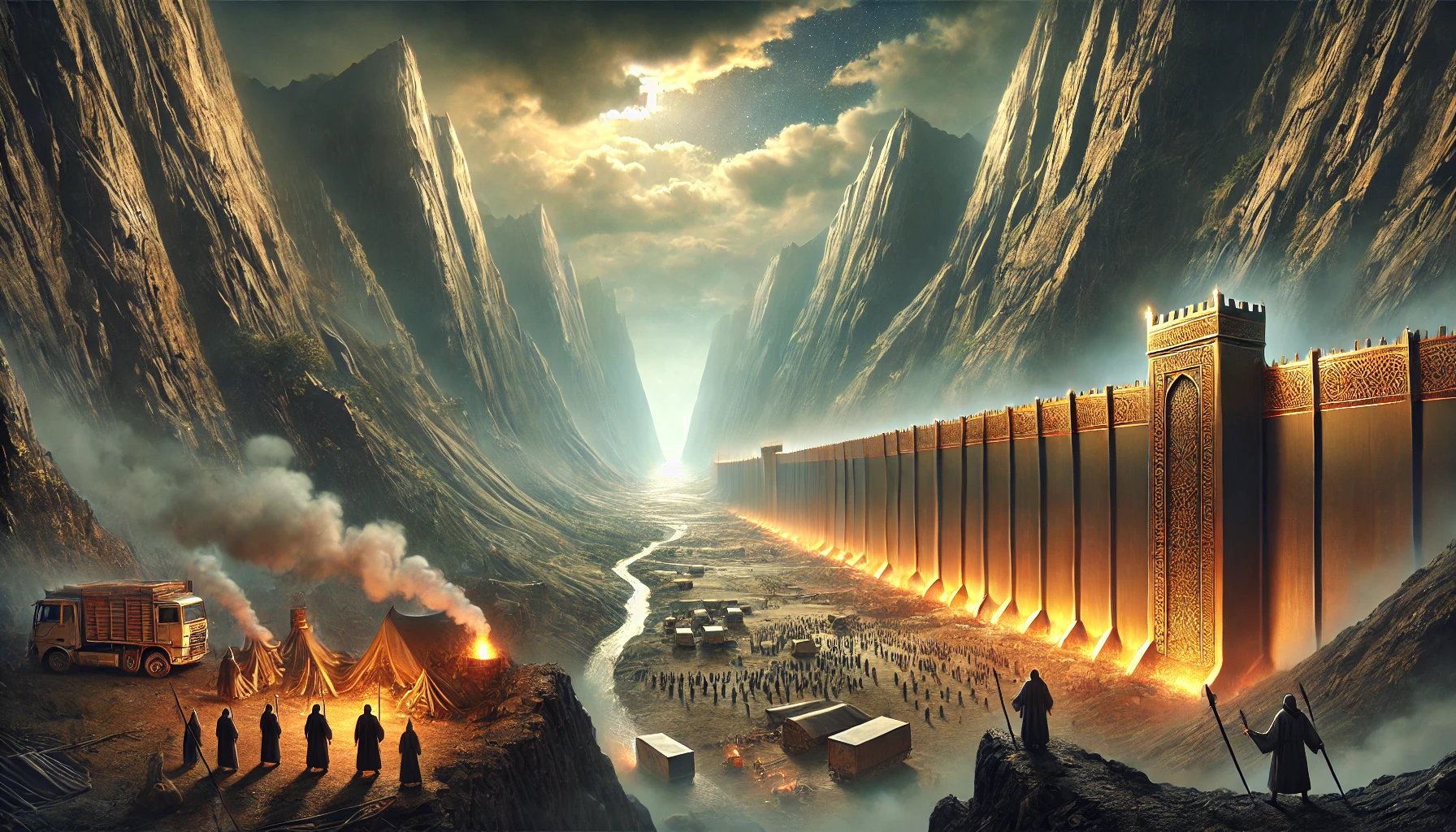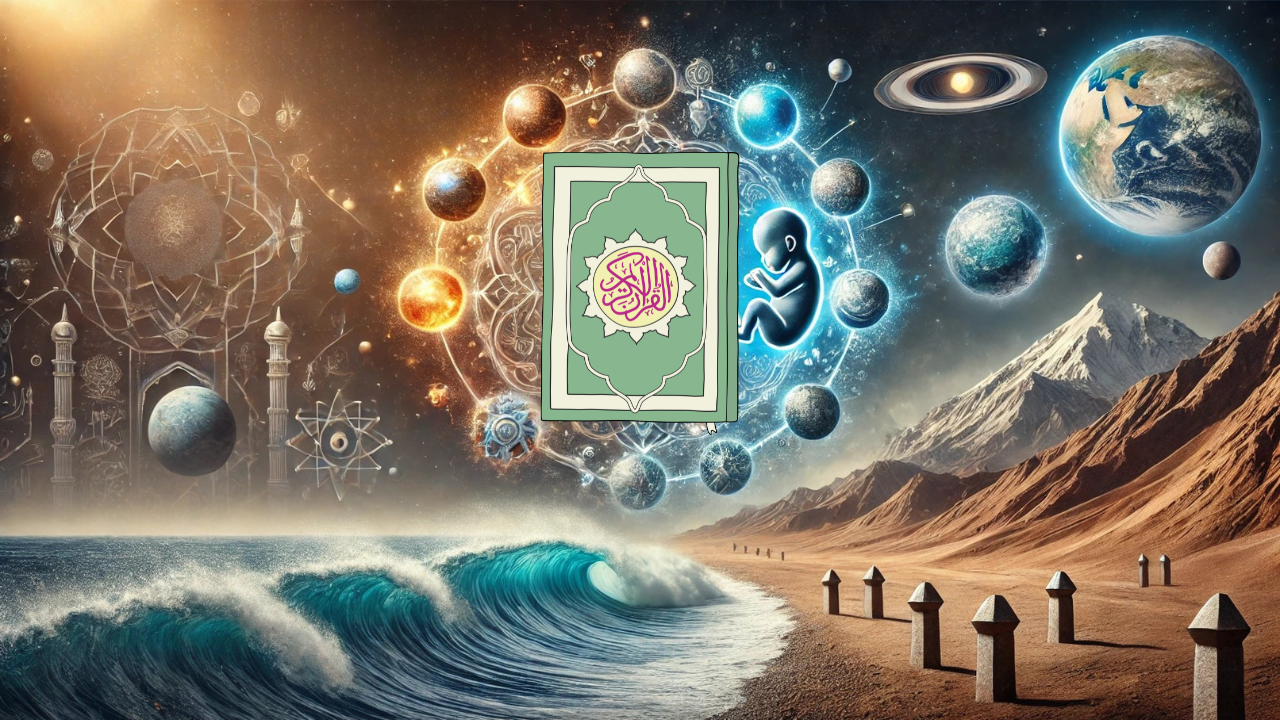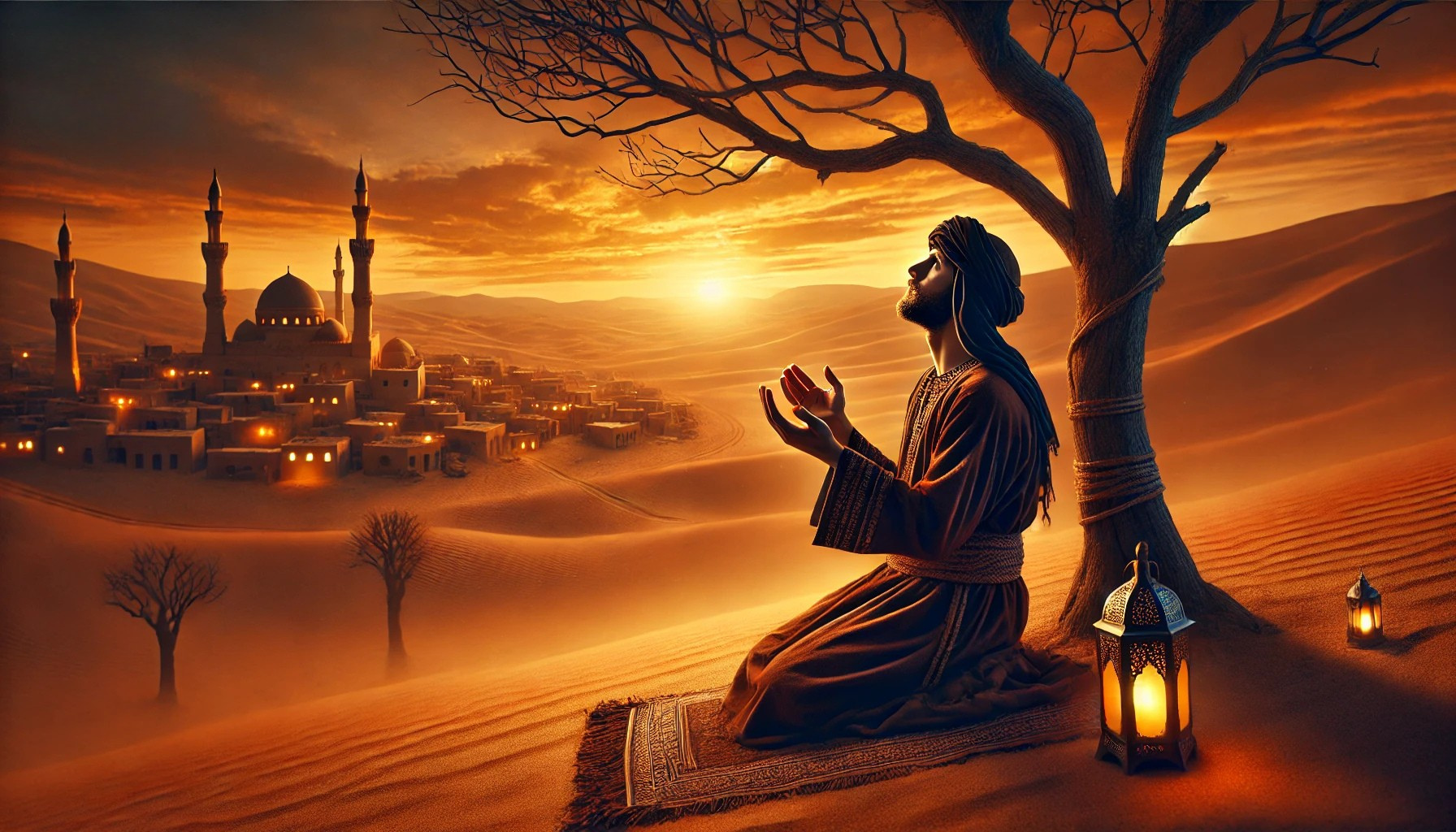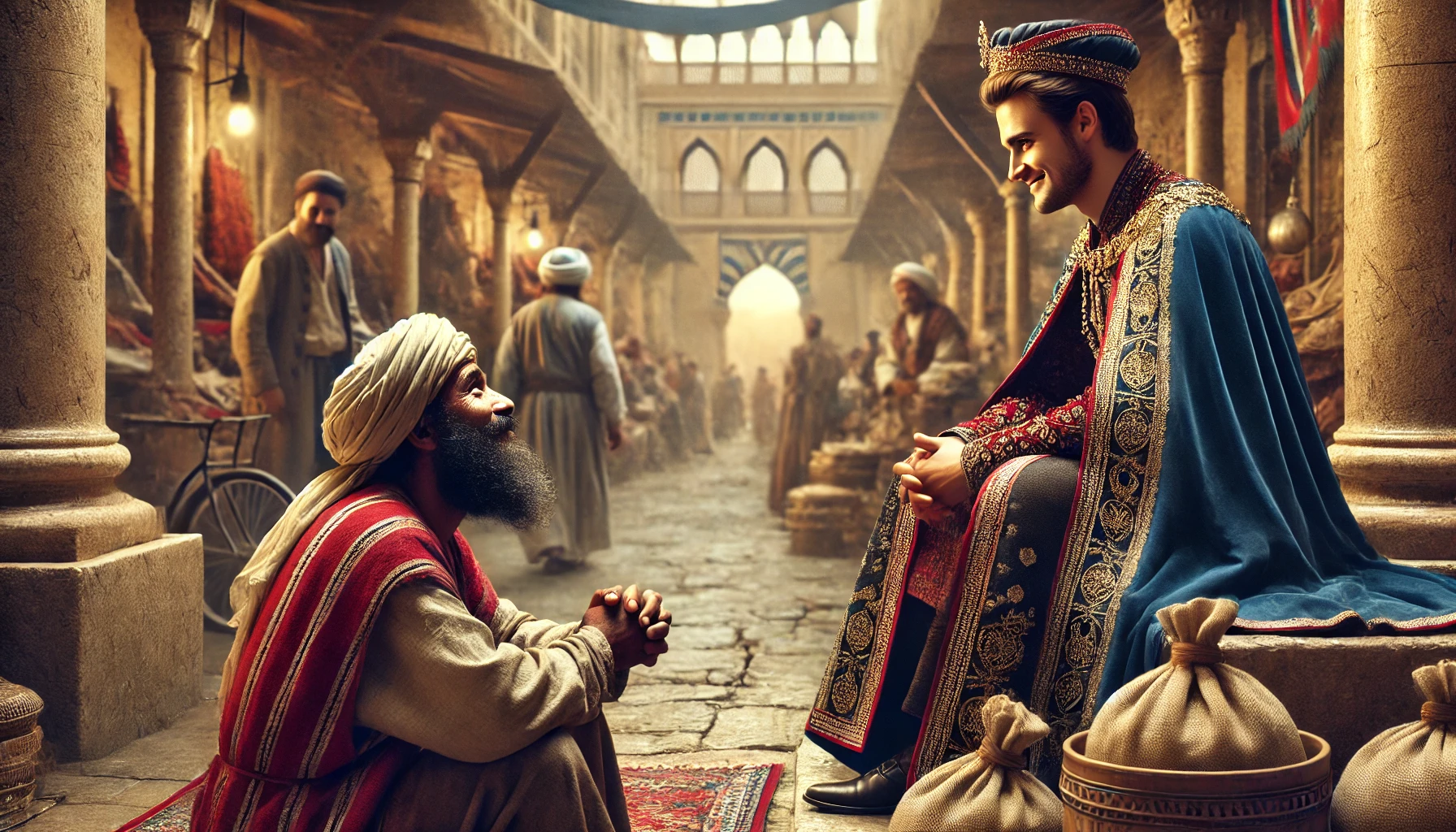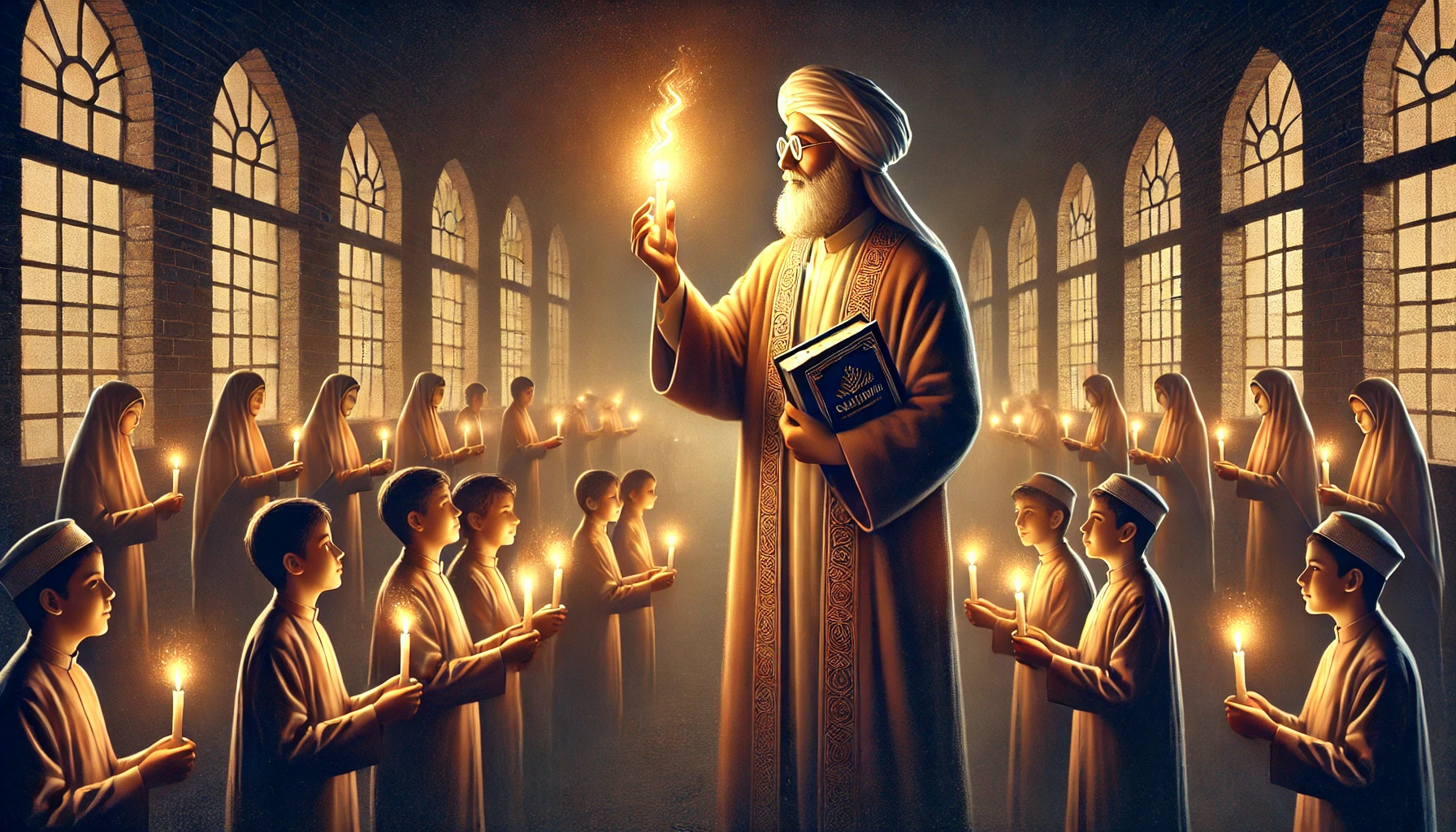Who Was Dhul-Qarnayn?
Dhul-Qarnayn (ذو القرنين), meaning “The One with Two Horns,” is a mysterious and noble ruler mentioned in the Qur’an, Surah Al-Kahf (18:83–101). Although his exact identity is not confirmed, he is known for his righteous leadership, worldly power, and deep faith in Allah.
He was a just ruler who traveled to the ends of the Earth, spreading justice, protecting the oppressed, and upholding truth. His story offers timeless lessons on leadership, justice, and the limits of human power.
Dhul-Qarnayn in the Quran
📖 Surah Al-Kahf (18:83-98) narrates the story of Dhul-Qarnayn in three journeys:
1. Journey to the West (Sunset Place)
“Until, when he reached the setting of the sun, he found it set in a spring of dark mud, and he found a people near it. We said: ‘O Dhul-Qarnayn! Either punish them or treat them with kindness.’”
— Qur’an 18:86
Here, he encounters a community and is given the choice by Allah to judge them. He chooses justice — punishing the wrongdoers and rewarding the righteous.
Lesson: A true leader balances justice with mercy.
2. Journey to the East (Sunrise Place)
“Then he followed a way. Until, when he came to the rising of the sun, he found it rising on a people for whom We had not made any shelter against it.”
— Qur’an 18:89-90
This refers to people living without protection from the sun, possibly representing a remote and primitive community. Dhul-Qarnayn continues his journey, respecting their way of life.
Lesson: Respect and understanding are key in leadership, even with those who are different.
3. Journey Between Two Mountains (Gog and Magog)
“They said, ‘O Dhul-Qarnayn, indeed Gog and Magog are [great] corrupters in the land. So may we assign for you an expenditure that you might make between us and them a barrier?’”
— Qur’an 18:94
He meets a people living between two mountains who are threatened by Gog and Magog (Ya’juj and Ma’juj) — corrupt tribes known for chaos and destruction. Dhul-Qarnayn refuses their money, but helps them build a strong barrier made of iron and molten copper to protect them.
“So they [Gog and Magog] were unable to scale it, nor were they able to dig through it.”
— Qur’an 18:97
Lesson: Righteous leaders help others without expecting worldly rewards. Real power lies in service, not control.
Who Were Gog and Magog (Ya’juj & Ma’juj)?
These two destructive tribes will be released near the end of times as part of major signs before the Day of Judgment. Their release is described in Surah Al-Anbiya (21:96) and Hadith literature. The barrier built by Dhul-Qarnayn will hold them back until Allah wills otherwise.
Was Dhul-Qarnayn Alexander the Great?
Some historians tried to equate Dhul-Qarnayn with Alexander the Great, but many scholars reject this view. Alexander was a Greek polytheist, whereas Dhul-Qarnayn was a monotheistic, righteous ruler who upheld the worship of Allah.
Others suggest he may be Cyrus the Great or a different unknown king. Regardless of identity, the Quran emphasizes his character, justice, and submission to Allah, not his name.
Key Lessons from Dhul-Qarnayn’s Story
✅ Justice and fairness are the qualities of a true leader.
✅ Power is a test — use it to help, not to harm.
✅ Humility in leadership: Dhul-Qarnayn always acknowledged Allah as the true source of power.
✅ Serving people without seeking reward is a sign of sincerity.
✅ Prepare for the future — like building the wall against Gog and Magog.
Conclusion
The story of Dhul-Qarnayn is a powerful reminder that true greatness lies not in military conquest or wealth, but in righteousness, humility, and justice. It teaches us that faith and leadership can go hand-in-hand, and that with power comes responsibility.
“Say: I shall recite to you something of its story.”
— Surah Al-Kahf (18:83)
